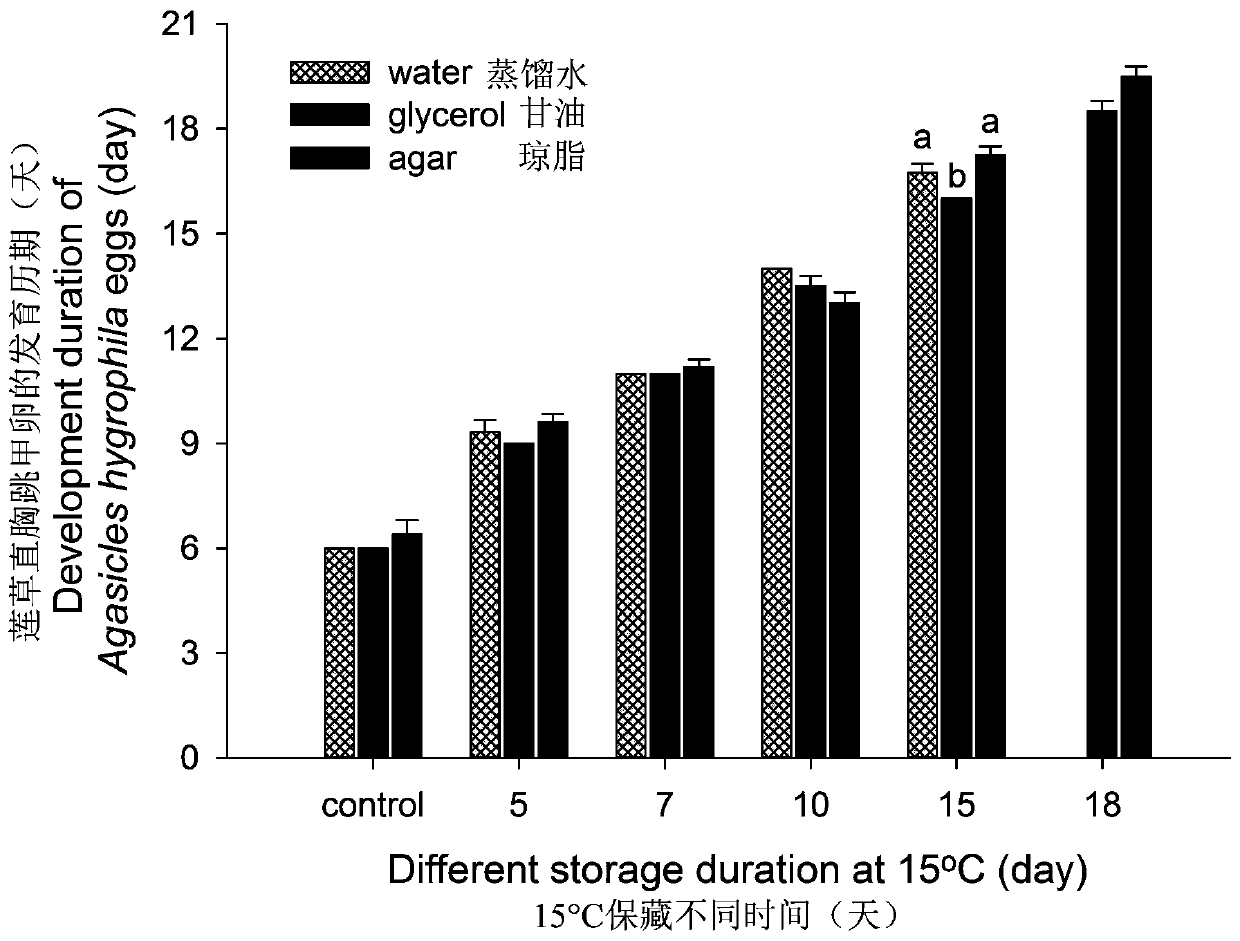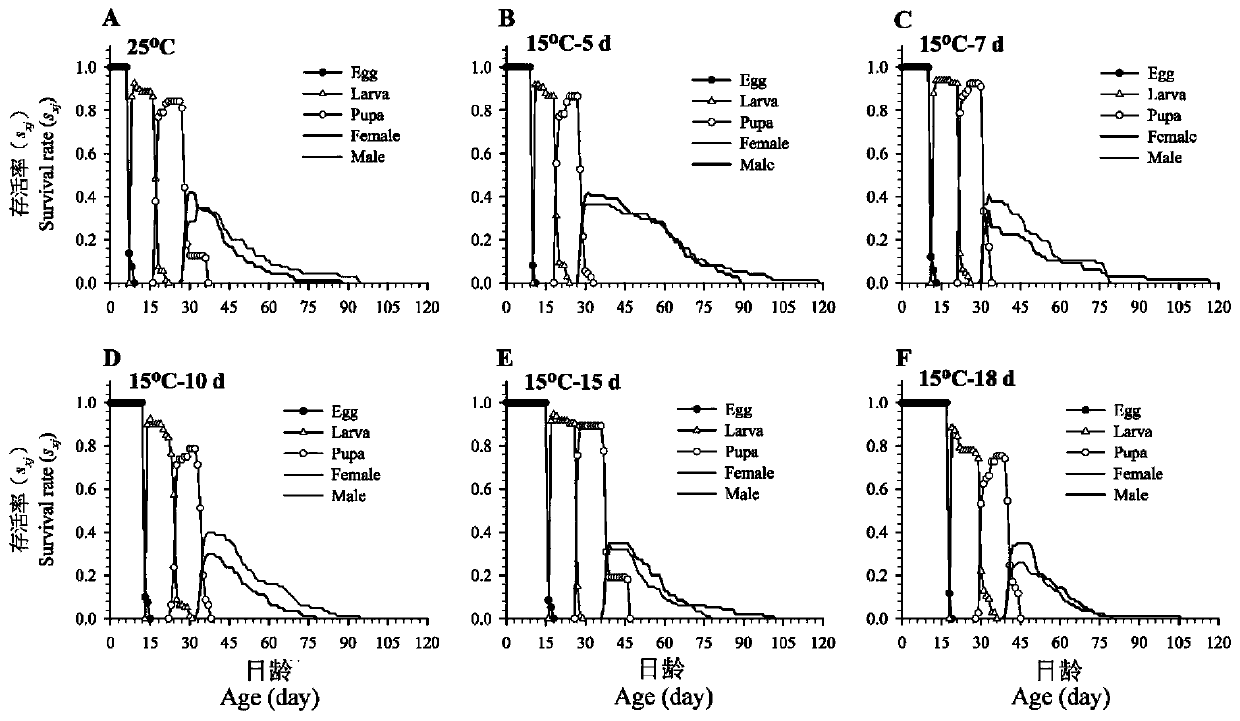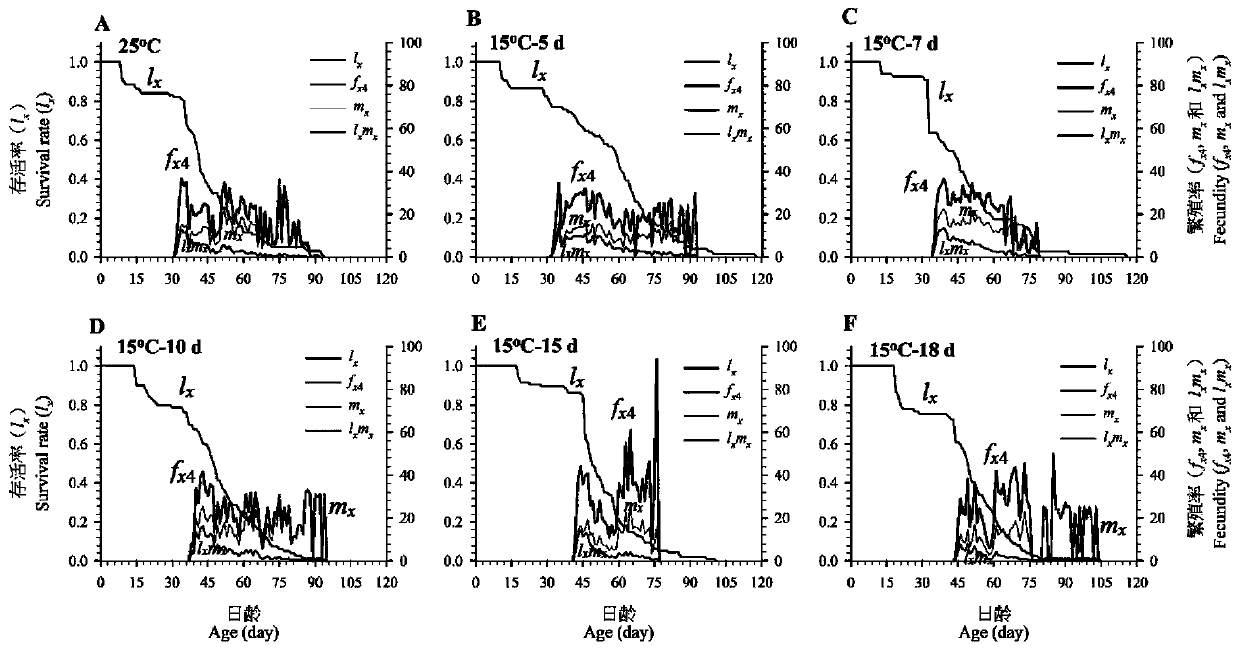Low-temperature preservation method of agasicles hygrophila eggs
A technology of cryopreservation and cryopreservation of A. chrysalis, which is applied in the field of cryopreservation of insect eggs, can solve problems such as the inability to determine the subsequent developmental stage, population and even the impact of the next generation of A. chrysalis
- Summary
- Abstract
- Description
- Claims
- Application Information
AI Technical Summary
Problems solved by technology
Method used
Image
Examples
Embodiment 1
[0018] The cryopreservation method of the eggs of A. lotus flea beetle of the present embodiment comprises the following steps: taking the ovum laid on the day of A. lotus flea beetle on A. chinensis, and picking the leaves, and placing them in a petri dish. Moisturize the bottom with distilled water-wet filter paper, seal the top with plastic wrap, and tie small holes for ventilation. At a storage temperature of 15°C, preserve the eggs of A. chinensis. Fecundity, population parameters, and F 1 The hatching rate of the surrogate egg and the preservation time of the egg duration are 5 days.
Embodiment 2
[0020] The cryopreservation method of the eggs of A. lotus flea beetle of the present embodiment comprises the following steps: taking the ovum laid on the day of A. lotus flea beetle on A. chinensis, and picking the leaves, and placing them in a petri dish. Moisturize the bottom with 1% (m / v) agar medium, seal the top with plastic wrap, and pierce small holes for ventilation. At a storage temperature of 15°C, preserve A. chinensis eggs until the survival of each stage is not affected. rate, developmental time, lifespan, fecundity, population parameters, and F 1 The hatching rate of the surrogate egg and the preservation time of the egg duration are 7 days.
[0021] In order to verify the key influencing factors in the present invention, the present invention provides the following experimental process and results.
[0022] 【experiment material】
[0023] The insects tested were A. chinensis (originally collected from South China Agricultural University) kept in the insect cu...
PUM
 Login to View More
Login to View More Abstract
Description
Claims
Application Information
 Login to View More
Login to View More - R&D
- Intellectual Property
- Life Sciences
- Materials
- Tech Scout
- Unparalleled Data Quality
- Higher Quality Content
- 60% Fewer Hallucinations
Browse by: Latest US Patents, China's latest patents, Technical Efficacy Thesaurus, Application Domain, Technology Topic, Popular Technical Reports.
© 2025 PatSnap. All rights reserved.Legal|Privacy policy|Modern Slavery Act Transparency Statement|Sitemap|About US| Contact US: help@patsnap.com



